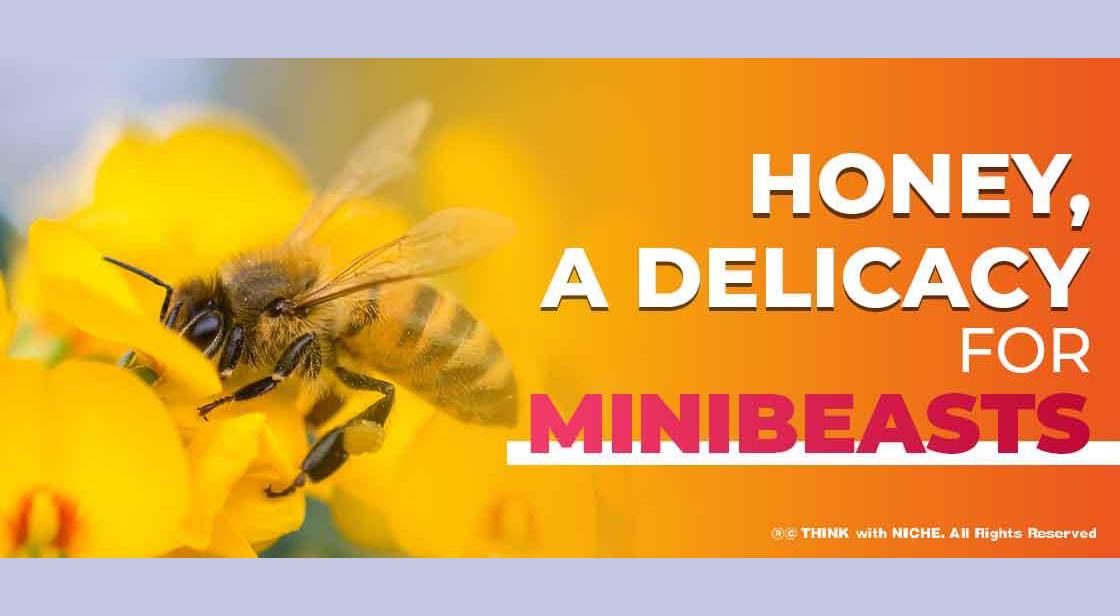Honey - A Delicacy for Minibeasts

Blog Post
Although caretakers of bees frequently retain residual nectar in the comb, maintaining a diversity of nectar appears to be important. #ThinkWithNiche
Bees are the most wonderful gifts to mankind. God has created the best out of nature. Hence, without any doubt, bees are well-versed in honey production. The populace of bees is not just honey makers but also adept eaters. If you give a wounded bee multiple types of nectar, it will select something that effectively combats its ailment. Whenever it pertains to the dietary intricacies of nectar, humans, on either side, have a huge task to do. Only several generations earlier, most classifications of "healthy ingredients" – those that provide therapeutic gain to anything that goes above the fundamentals of nutrition – did not include it, according to the University of Illinois, entomologist May Berenbaum. "Many beekeepers, and definitely bee biologists, though it was nothing more than a sucrose solution. Ever since a huge amount of study has demonstrated that nectar contains a plethora of biologically active compounds that affect the wellbeing of bee colonies. Honey ingredients may enable honey bees to survive and thrive lifespans, increase overall resistance to adverse environments such as winter weather, and improve their capability to defend against illnesses and repair injuries.
The evidence points to potential solutions for bees, who have been severely harmed in past decades by pathogens, environmental toxins, and forest destruction. Honey is delicious on pancakes or in iced coffee. It's substantially more than a condiment of sugar. The sticky substance is largely sweetener, which colonies of bees consume for nutrition. However, it also contains proteins, nutrients, elements, and aromatic substances that lend every honey exclusive flavor and bestow a plethora of beneficial properties to honeybees. Nectar may be produced by several bugs, including pollinators and nectar flies, but just bees generate their own to supply retail baskets. This talent did not develop immediately. It took centuries to develop.
Additional studies have discovered the impacts of certain other chemicals in nectar. According to research, abscisic acid increases bees' innate immunity, injury recovery period, and endurance to low conditions. Other phytonutrients minimize the effects of infections, which is among the primary reasons for bee colony downturn: for instance, feeding mushroom native pollinator nectar with essential oils, a phytochemical derived from mint herbs, reduced the number of pathogens considerably than half of it. Phytoconstituents have also been demonstrated to block the pathogens of Western Europe chestnut blight, the last out of all which are so deadly and invasive that it is believed to destroy entire colonies to minimize its transmission.
Given the fact that nectar boosts resistance and has several healing properties, pollinators like bees yet remain in danger. Throughout 2020-2021, American pollinators destroyed half of the entire hives, the initial while since the profitless Bee Aware Alliance started its poll in 2005. Although caretakers of bees frequently retain residual nectar in the comb, maintaining a diversity of nectar appears to be important: the study revealed that various honey, generated from honeybees feeding on wild insect pest plant floral, daisies, or a combination of florals, fight off multiple kinds of germs
You May Like
EDITOR’S CHOICE












